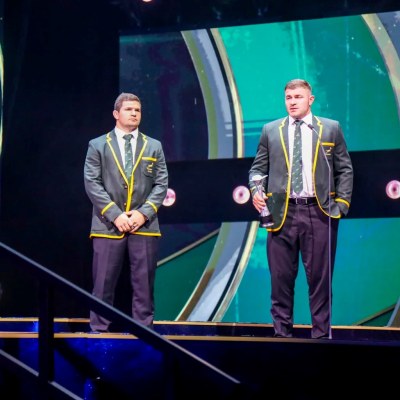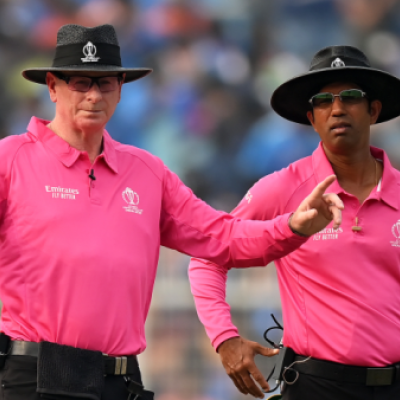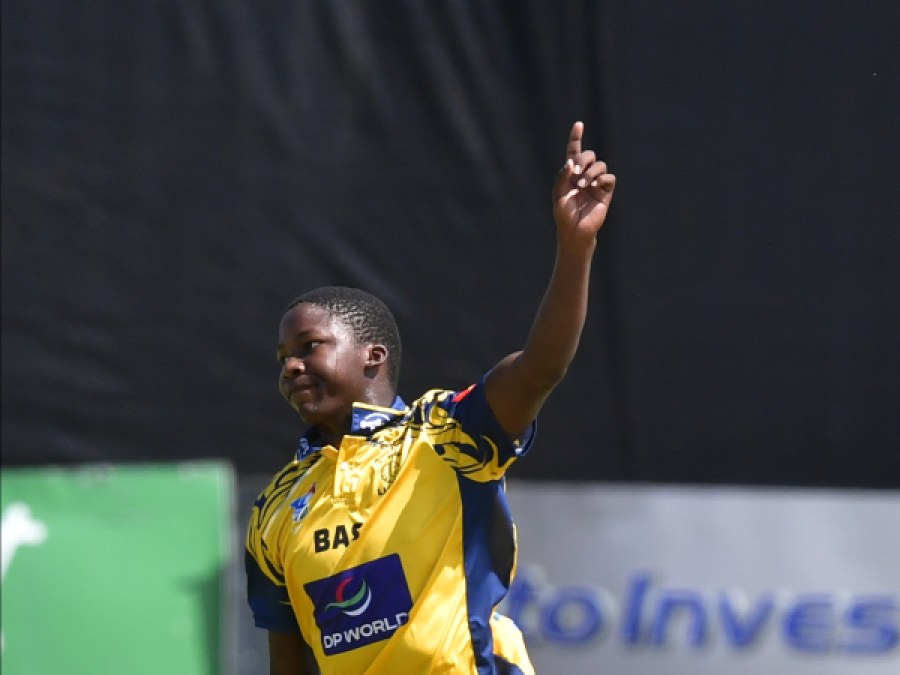
25 March 2024 - Lions Cricket is buzzing with excitement as 17-year-old matriculant Kwena Maphaka joins the Mumbai Indians for this year's Indian Premier League. This marks the third Pride member from Lions Cricket to join the IPL this season, showcasing the talent nurtured within the Lions Cricket ranks.
President of Lions Cricket, Dr. Mohammed Moosajee, is proud to see Maphaka join the ranks of the Mumbai Indians, with the esteemed Dr. Moosajee himself serving as the official team doctor for the Rajasthan Royals.
Adding to the pride is #ThePrideOfJoburg's KG Rabada, who, after a stellar performance in the CSA T20 Challenge, has been signed by the Punjab Kings. Rabada's consistency and skill have made him a standout player, representing Lions Cricket on the international stage.
Russell Domingo, the Head Coach of DP World Lions, expressed his excitement for Maphaka's opportunity, highlighting the youngster's talent and work ethic. Domingo praised Maphaka's contribution to the team, especially his ability to take crucial wickets early in the game and perform under pressure.
Allan Donald, the Bowling Coach of DP World Lions, echoed Domingo's sentiments, stating that Maphaka is a rare talent with a bright future ahead. Donald compared Maphaka to Rabada, noting their shared determination and confidence in their abilities.
Maphaka's journey from the local schooling system to the IPL is a testament to his hard work and dedication, as well as the support of the coaching staff at Lions Cricket. His inclusion in the Mumbai Indians squad is not only a milestone in his career but also a source of pride for Lions Cricket and South African cricket as a whole.
As Maphaka embarks on this exciting chapter, Lions Cricket wishes him the very best and looks forward to seeing him shine on the international stage.
[Submitted by Kevin Rademeyer]
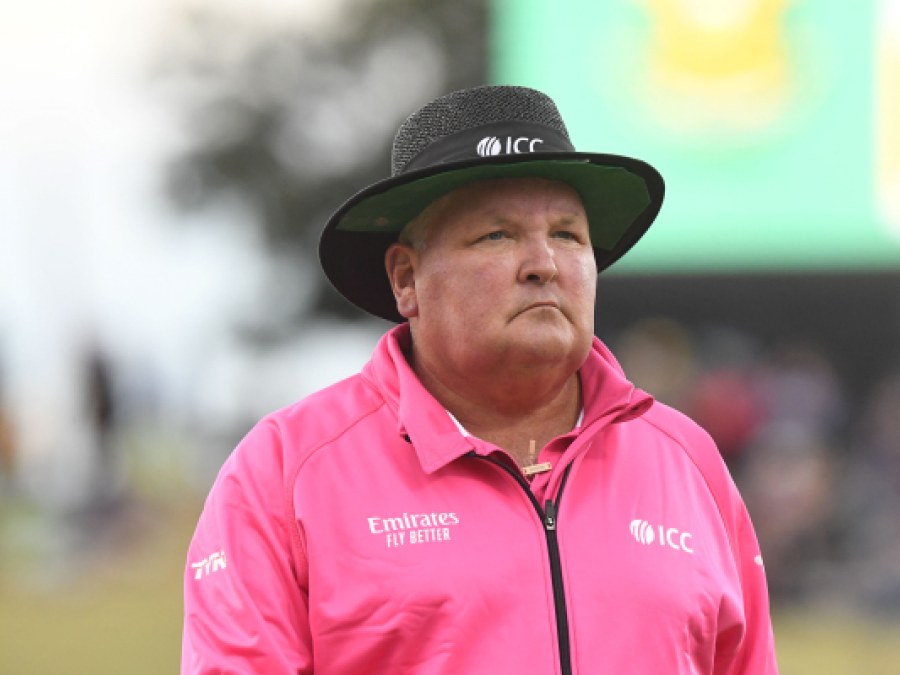
Marais Erasmus, a seasoned umpire, has had an illustrious career spanning 18 years at the highest echelons of the game, earning admiration from Cricket South Africa (CSA). Erasmus recently concluded his incredible journey with his final appearance in the second Test between New Zealand and Australia in Christchurch.
Having made his international debut in 2006, the seasoned official has overseen a remarkable 82 Tests, 124 Men's One-Day Internationals, and 43 Men's and 18 Women’s T20 Internationals. He has experience covering major events such as the 2019 ICC Men’s Cricket World Cup final at Lord’s and the 2021 and 2022 ICC T20 Men’s World Cup finals in Dubai and Melbourne.
Erasmus has been recognized as the ICC Umpire of the Year three times, showcasing his outstanding skill and dedication to fair play.
CSA is currently in talks with Erasmus to potentially leverage his extensive experience for the betterment of the cricketing community moving forward, in light of his remarkable accomplishments.
Looking back on his retirement, Erasmus said, "It's been an incredible journey, and I never imagined it would span 18 years." When focused on your work, thoughts about contributions to officiating only arise upon reflection after completion. Hoping for success to inspire many South Africans to pursue umpiring. Being in this role is incredibly rewarding!
Erasmus also thanked his family for their constant support throughout his career, recognizing their understanding and encouragement during long periods away from home.
"My family has been incredibly supportive, with my wife Adéle being a source of strength, and my sons Chris and Geo developing into outstanding young men." Despite facing several challenges over the years because of being away from home, they stayed strong and optimistic.
The CSA Chief Executive Officer expressed gratitude to Erasmus for his valuable contribution to cricket, highlighting Marais' exceptional umpiring skills and unique perspective gained from his experience as a player. He is highly respected and has an unmatched connection with today's players.
"He has not only been a guardian of fair umpiring but has also played a crucial role in enhancing the spirit of cricket, and on behalf of CSA, I extend my heartfelt gratitude for his invaluable contributions to the game."
CSA is dedicated to promoting excellence in officiating and is excited about the ongoing development of cricket with the leadership of experienced individuals such as Marais Erasmus.
PHOTO: GALLO
[Submitted by Kevin Rademeyer]
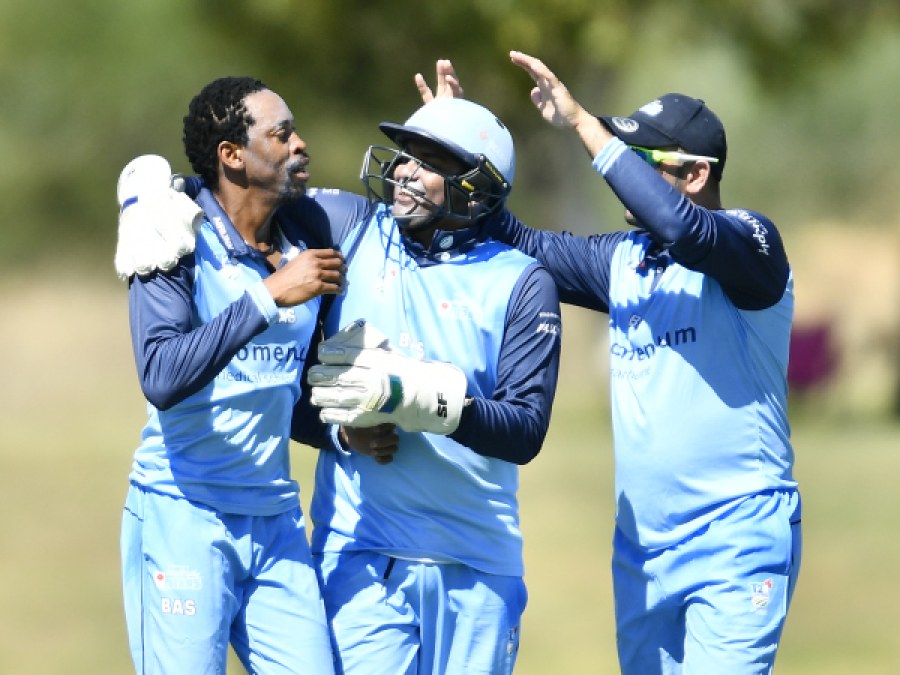
The Cricket South Africa (CSA) T20 Challenge kicked off with a bang as the Western Province, Titans, Lions, and Warriors delivered stellar performances, captivating fans with their thrilling victories.
In a nail-biting match at Boland Park, Momentum Multiply Titans, led by the seasoned Aaron Phangiso, secured their second win in a row by defeating Gbets Rocks by four wickets. Phangiso's all-round brilliance, with a crucial 25 off just 9 balls and a miserly 1/16 with the ball, proved decisive in the Titans' triumph.
Meanwhile, at World Sports Betting Newlands Cricket Ground, Western Province cruised to a seven-wicket victory over AET Tuskers. Jonathan Bird's explosive unbeaten 61 off 33 balls stole the show, guiding his team to a comfortable win with 45 balls to spare.
In another thrilling encounter, Dafabet Warriors dominated Hollywoodbets Dolphins, clinching victory by seven wickets at Hollywoodbets Kingsmead Stadium. Jiveshan Pillay and Matthew Breetzke's solid performances with the bat ensured a smooth victory for the Warriors.
Lastly, at Potchefstroom, DP World Lions emerged victorious against Auto Investments North West Dragons, securing a nine-wicket win with a stellar performance from Reeza Hendricks. Hendricks' destructive 57* off 30 balls, coupled with a strong bowling display from Junaid Dawood and others, sealed the Lions' victory.
The CSA T20 Challenge has set the stage for an exciting season of cricket, with these four teams showcasing their talent and determination. As the tournament progresses, fans can expect more thrilling encounters and standout performances from these top teams.
[Submitted by Kevin Rademeyer]
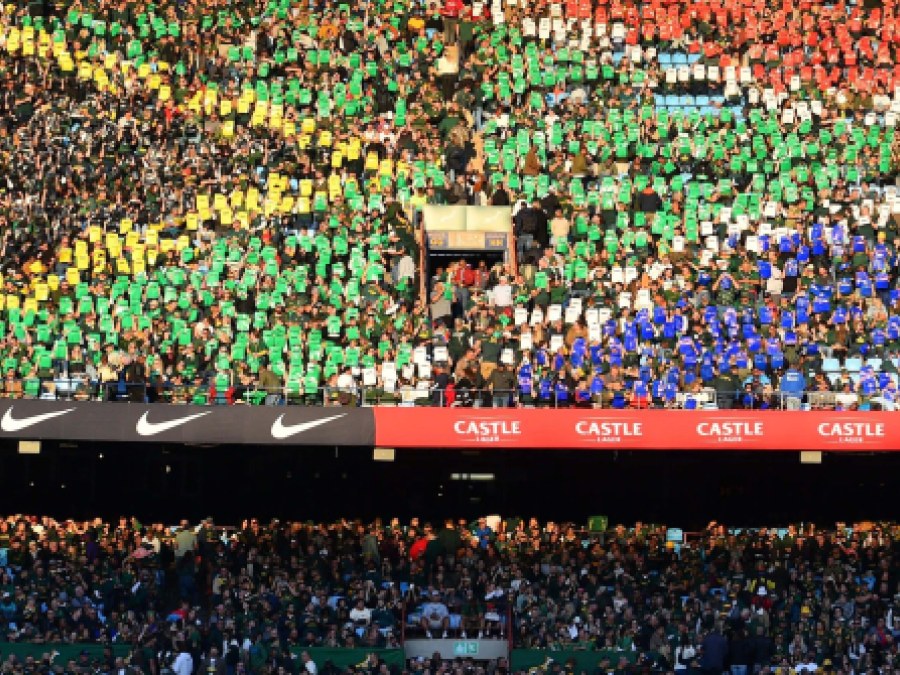
The much-anticipated test match between the Springboks v Ireland at Loftus taking place on 6 July 2024 has been SOLD OUT.
General ticket sales to the public opened on 4 March at 9h00 and were SOLD OUT on the same day, another ground-breaking feat by Loftus Versfeld Stadium. Hospitality tickets remain available but are limited. Fans are urged to make these purchases as soon as possible should they wish to be part of what promises to be the biggest rugby encounter for 2024. Please visit bulls.ticketpro.co.za, email @ or call 082 805 3150 to book your hospitality tickets.
Blue Bulls Company CEO, Edgar Rathbone, “It’s the third SOLD OUT test match at Loftus Versfeld in the past three years, which is an amazing sign for rugby in South Africa, and especially Pretoria where rugby fever is at an all-time high. With the rivalry between these two amazing test sides growing in stature, fans are in for an absolute treat. I do not doubt that this test selling out in such a short time will have a positive impact on the sales for the remaining test matches to be played in South Africa later this year.”
South Africans will be spoilt for choice with a host of Test matches in 2024. The Springboks’ home Test schedule:
Saturday, 6 July: SA vs. Ireland (Loftus Versfeld, Pretoria)
Saturday, 13 July: SA vs. Ireland (Hollywoodbets Kings Park, Durban)
Saturday, 20 July: SA vs. Portugal (Toyota Stadium, Bloemfontein)
Saturday, 31 August: SA vs. New Zealand (Emirates Airline Park, Johannesburg)
Saturday, 7 September: SA vs. New Zealand (DHL Stadium, Cape Town)
PHOTO: VODACOM BULLS
[Submitted by Kevin Rademeyer]
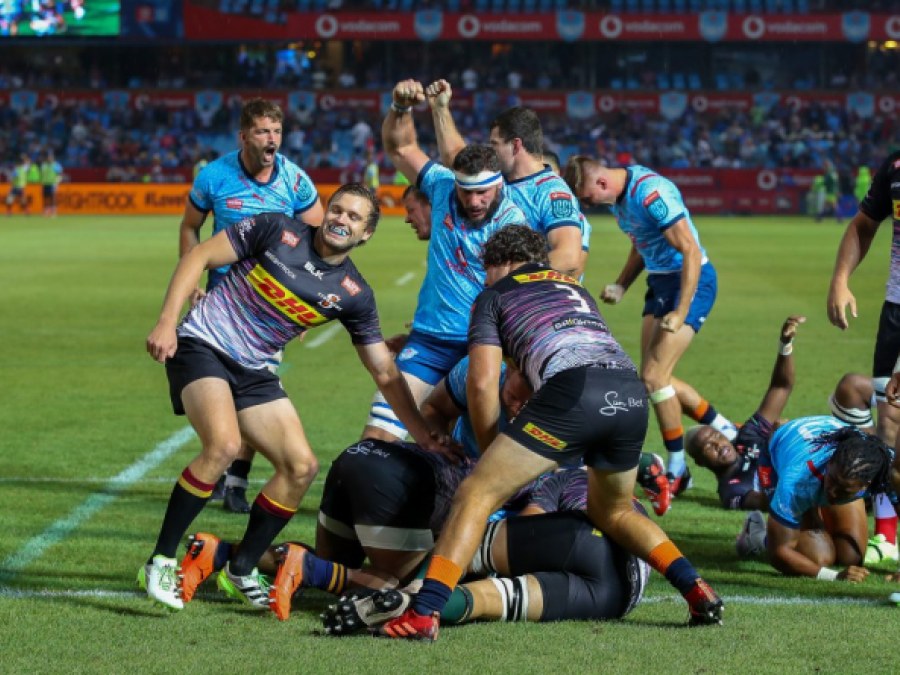
The Emirates Lions and Vodacom Bulls dazzled in the Vodacom United Rugby Championship, clinching crucial home victories over their rivals. The wins not only fortified their playoff ambitions but also showcased their prowess in the tournament.
In Johannesburg, the Emirates Lions roared past the Hollywoodbets Sharks with a commanding 40-10 triumph. Meanwhile, the Vodacom Bulls vanquished the DHL Stormers 40-22 in Pretoria, marking their first win against the Capetonians in eight matches and setting a new attendance record for a Vodacom URC league match in South Africa.
These results propelled the Vodacom Bulls to second place on the log with 40 points, trailing only Leinster on 44 points. The Emirates Lions climbed to 11th place with 29 points, a mere three points behind the eighth-placed Benetton.
The DHL Stormers slipped to ninth with 30 points, while the Hollywoodbets Sharks languished at the bottom of the log with just one win in 11 matches. Adding to the Stormers' woes, they conceded their top spot in the SA Shield standings to the Vodacom Bulls, who now lead by three points.
The Emirates Lions' triumph over the Hollywoodbets Sharks was a testament to their resurgence in the tournament. They orchestrated a stunning second-half display, scoring six tries while steadfastly defending against the Sharks' attacks. The match was highlighted by Sanele Nohamba, JC Pretorius, and Quan Horn's tries, propelling the Lions to a resounding victory.
Meanwhile, the Vodacom Bulls showcased their dominance against the DHL Stormers. Despite a valiant comeback attempt by the Stormers, the Bulls stood firm, securing a convincing win with tries from Johan Grobbelaar, Canan Moodie, and Embrose Papier.
With these victories, both Gauteng teams have bolstered their playoff hopes and set the stage for an exhilarating climax to the Vodacom URC season.
[Submitted by Kevin Rademeyer]
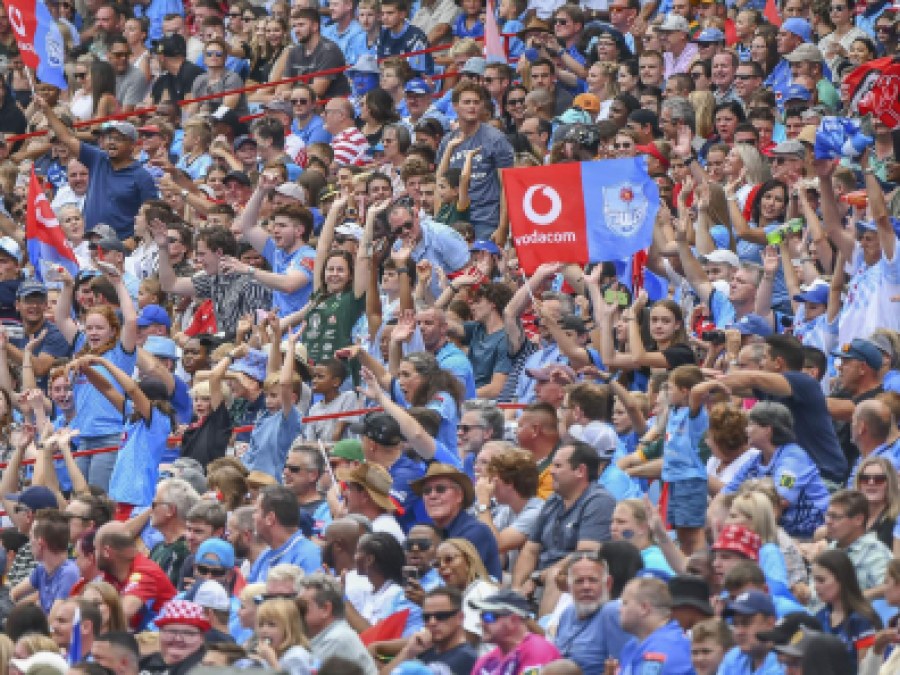
Excitement is building as 33,000 fans have already secured their spots for the upcoming Vodacom United Rugby Championship showdown between the Vodacom Bulls and the DHL Stormers at Loftus Versfeld. With 18,000 tickets still up for grabs, the atmosphere promises to be electric for this highly anticipated clash on Saturday, 2 March 2024.
Vodacom Bulls co-captain, Ruan Nortje, expressed his anticipation, stating, "There is nothing better than running out to a packed Loftus." He highlighted the importance of the home crowd's support, noting how their passion provides the team with an extra edge during crucial moments in the game.
The match holds significant stakes as both teams vie for crucial points to secure home-ground playoff spots and the coveted South African shield. The Vodacom Bulls currently sit third on the log, trailing behind the table-topping Leinster, while the DHL Stormers are in sixth place, five points behind the Bulls.
Nizaam Carr, who has experienced the North-South derby from both sides, emphasized the impact of a large, vocal crowd, describing it as an indescribable feeling that fuels the players and intimidates visiting teams.
With 30,000 tickets already sold, the anticipation is palpable, and Nortje is confident that the remaining 18,000 fans are eagerly preparing to join the festivities. The day promises to be packed with entertainment, including friendly matches and a musical lineup featuring popular artists like December Streets and Martin Bester & the band.
Tickets for this epic clash start at R50.00 and can be purchased from Ticketpro. Don't miss out on this unforgettable rugby experience at Loftus Versfeld
[Submitted by Kevin Rademeyer]
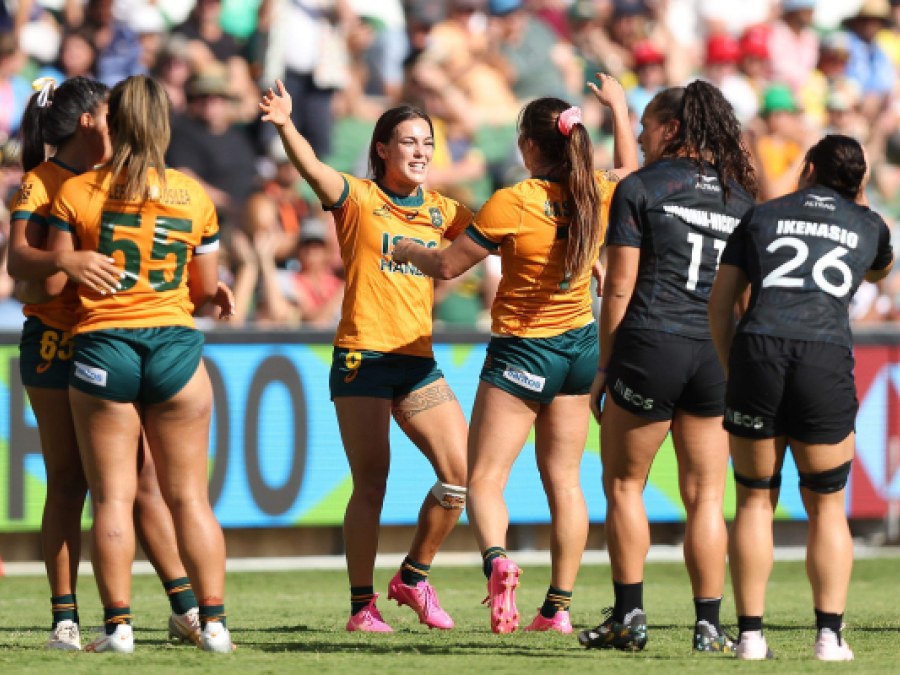
In a dazzling display of skill and determination, Ireland's women scripted a historic chapter at the HSBC SVNS 2024 in Perth, shattering Australia's winning streak in a gripping final. The sell-out crowd at HBF Park, the largest rugby gathering in Western Australia since 2017, witnessed jubilant scenes as Ireland claimed their first series win, ending a 29-game losing streak to Australia.
Amid near-perfect weather conditions, Ireland's victory was a long-awaited moment, marked by a stellar performance that left Coach Alan Temple-Jones almost speechless. "Playing Australia in Australia is an unbelievable opportunity for the girls," he exclaimed, expressing the team's sheer delight and focus throughout the tournament.
Captain Lucy Mulhall echoed the sentiment, stating, "This win has been a long time coming. It means a lot, and we've been on a long journey. This is massive for women's Irish rugby; we'll be sure to celebrate."
In an eventful bronze medal match, a resurgent Great Britain, without injured captain Abbie Brown, secured their second-ever HSBC Sevens bronze with a maiden series victory over the USA. Isla Norman-Bell's stunning kick-and-chase effort exemplified the team's growing prowess.
As Ireland leaps to fourth in the overall SVNS standings and Australia maintains its dominance at the top, Great Britain emerges as a big winner, moving out of the relegation zone for the first time this season.
The HSBC SVNS 2024 caravan now heads to Vancouver, Canada, promising more exhilarating rugby action on the weekend of February 23-25. Secure your tickets and be part of the thrilling saga!
[Submitted by Kevin Rademeyer]
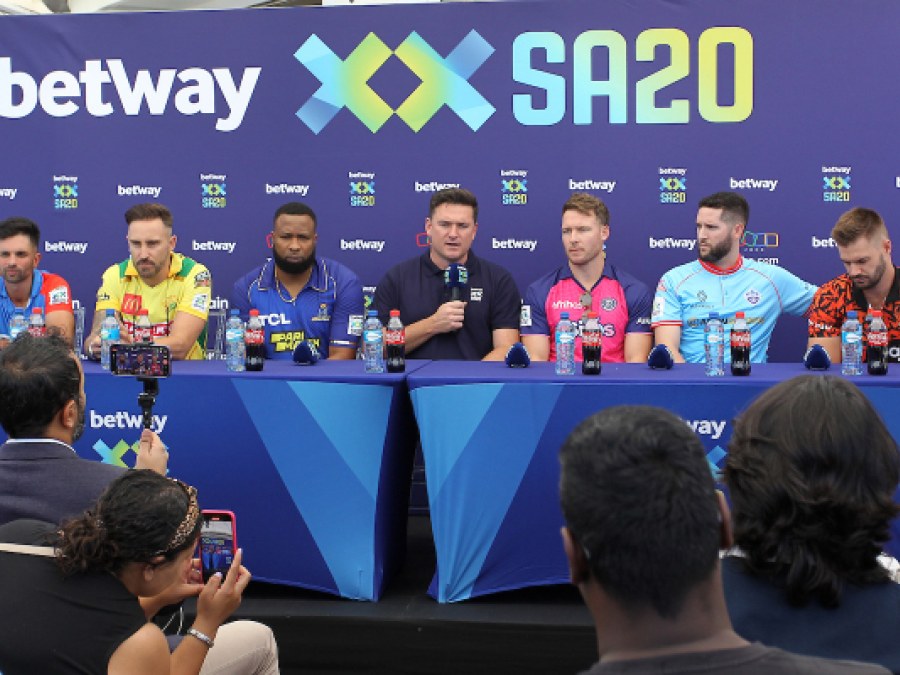
Dream11 has been appointed as the official ‘Fantasy Sports Partner’ for the Betway SA20 Season 2 starting on 10 January 2024.This strategic partnership with Dream11, India's leading fantasy sports application with a user base of over 200 million Cricket fans in the largest cricket market in the world, marks a significant milestone in bringing together South Africa’s premier T20 tournament with the passion of cricket fans in India.
India being a key strategic market, with six Indian Premier League (IPL) teams also owning teams in the SA20, the partnership with Dream11 unlocks an opportunity to connect with millions of cricket fans across the subcontinent.
“It’s a huge coup for us to welcome Dream11 to our stable as our ‘Fantasy Sports Partner’,”Betway SA20 League Commissioner, Graeme Smith said. “This partnership is the coming together of two dynamic platforms that share a commitment to delivering unparalleled entertainment to cricket fans. With Dream11’s extensive user base and influence in India, we see incredible potential to engage with fans and have a platform to enhance the engagement of fans with SA20.”
Speaking about the partnership, Vikrant Mudaliar, Chief Marketing Officer, Dream11 said: “Partnerships are core to our strategy and have played a key role in Dream11 becoming the world’s largest fantasy sports platform. We are excited to join forces with SA20, a league known for its thrilling and entertaining cricket. Through this partnership, we aim to reach new users and help them engage with the sport that they love. Together, we look forward to offering fans an unparalleled fantasy sports experience during the upcoming SA20 Season 2.”
Dream11, renowned for revolutionizing the way fans engage with their favourite sport, has become a household name in India. With over 200 million users, the platform has played a
pivotal role in developing the fantasy sports industry in the country. Dream11 is currently the lead sponsor of the Indian Men’s and Women’s National cricket team.
Betway SA20 Season 2 is set to kick off on January 10, 2024, with a blockbuster match between Sunrisers Eastern Cape and Joburg Super Kings at St George’s Park in Gqeberha. The world’s best cricketers will be on show including Jos Buttler, Kieron Pollard, Liam Livingstone, Nicholas Pooran, Moeen Ali and Romario Shepherd to name a few. Tickets for all round-robin matches, the Final and Playoffs are available for purchase on www.SA20.co.za
[Submitted by Kevin Rademeyer]
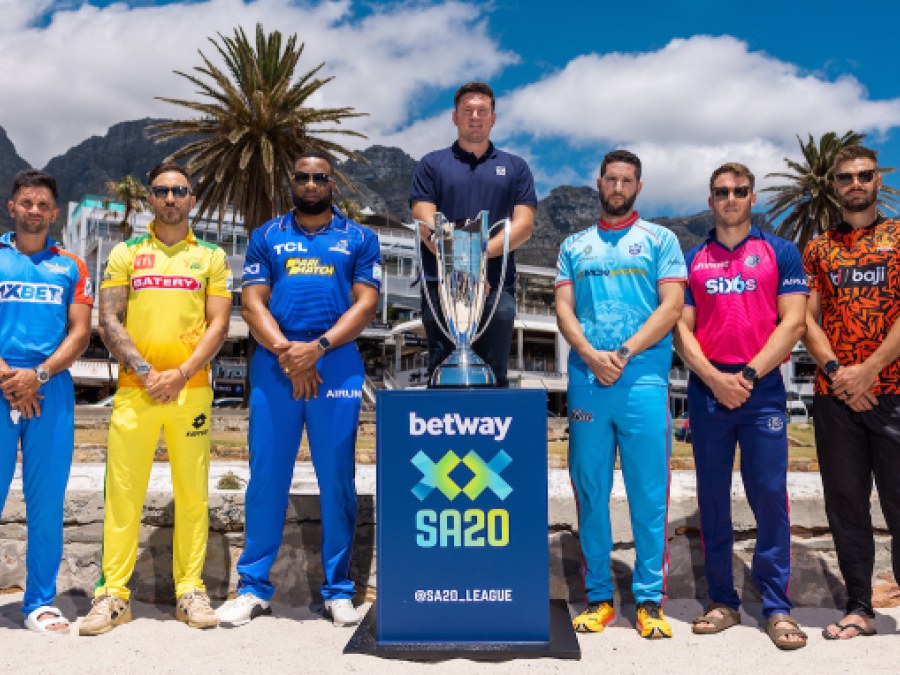
The opening clash of the highly anticipated Betway SA20 Season 2 is set to unfold at St George’s Park this Wednesday, marking the start of what promises to be an enthralling tournament.
Sunrisers Eastern Cape, the reigning champions, will face a significant challenge in their quest to defend their title as they square off against Joburg Super Kings. The clash holds added weight as the Super Kings seek to avenge their semifinal defeat to the Sunrisers at Centurion in the previous season.
The team from Johannesburg has tasted success at this iconic stadium before, triumphing in Gqeberha last season and securing victories in both group matches, including a win over the Sunrisers at the Wanderers.
This inaugural match pledges to be a thrilling spectacle, with both sides boasting an array of talented players that promise exciting matchups. Notably, both teams feature adept young fast bowlers, with Marco Jansen leading the attack for Sunrisers Eastern Cape, and Gerald Coetzee and Nandre Burger spearheading the JSK bowling unit.
Burger, eager to form a formidable opening bowling partnership with Coetzee, expressed his anticipation pending his teammate's recovery from a recent pelvic inflammation that sidelined him from the recent Test against India at Newlands.
The absence of the influential Roelof van der Merwe in Season 2 will be felt by the Sunrisers. However, coach Adrian Birrell strategically reinforced the team by bringing back Simon Harmer to the Eastern Cape. Harmer, known for his tenacity on the field, is expected to bring a competitive edge to the Sunrisers, having been part of the first trade in the League.
Despite the excitement surrounding the defending champions, Harmer emphasized the team's focus on winning the trophy this year rather than solely defending their title. He reflected on his cricketing journey, highlighting his affinity for Gqeberha, where his career took flight as a young player.
Unfortunately, the Sunrisers have encountered setbacks with the late withdrawals of Sisanda Magala and Craig Overton due to injury. Their absence has prompted the inclusion of hard-hitting all-rounder Patrick Kruger in the squad.
St George’s Park is expected to host a vibrant and lively atmosphere as witnessed during the previous season, with Grammy Award-winning Zakes Bantwini headlining the pre-match festivities supported by a blend of electronic dance music and violin by Veranda Panda.
The pre-match entertainment is scheduled to commence at 4:20 pm, leading up to the match kick-off at 5:30 pm. Gates will open at 2:30 pm, allowing fans early access ahead of the opening ceremony.
[Submitted by Kevin Rademeyer]
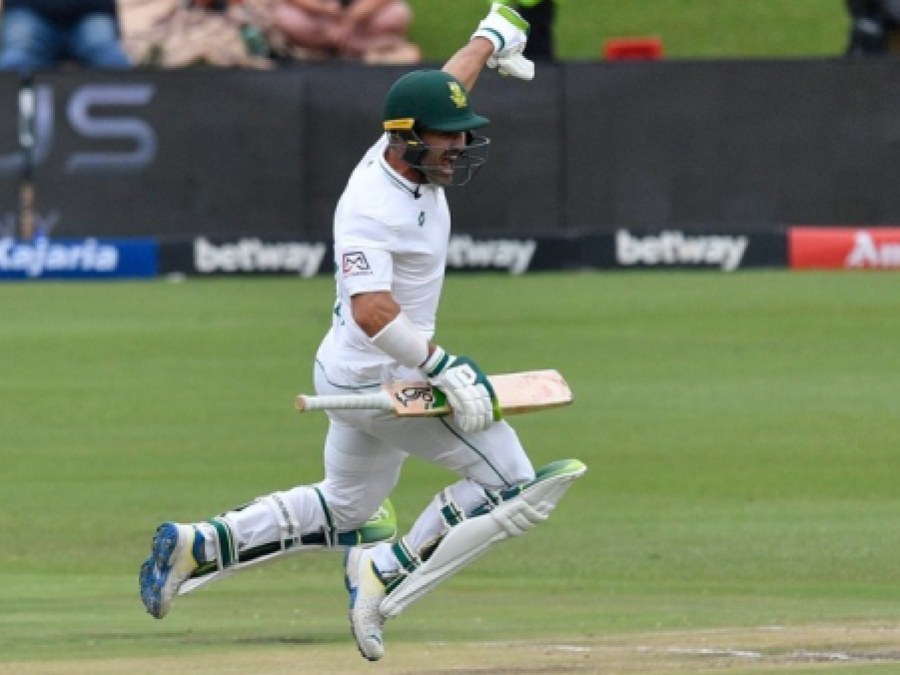
In a sensational showcase of cricket brilliance, South Africa steamrolled India in a dominating display, securing a commanding win in the series opener at Supersport Park, Centurion.
The Proteas' triumph was spearheaded by the stunning performance of debutant left-arm pacer Nandre Burger, who left cricket enthusiasts awestruck with his impressive figures of 4-33. Supported by Kagiso Rabada's prowess with the ball and Marco Jansen's valuable contributions, India succumbed to a mere second-innings total of 131 runs, granting South Africa a resounding victory by an innings and 32 runs, elevating them to a 1-0 lead in the two-match series.
The 28-year-old Burger showcased his talent by clinching a remarkable match haul of 7-83, while Rabada's stellar performance secured 7-91 across both innings, highlighting his exceptional 5-59 in the first innings.
"We fell short in our quest for victory," expressed Indian skipper Rohit Sharma. "We couldn't capitalize on the favorable conditions with the ball and stumbled in our batting performance today. To conquer Tests overseas, a collective effort is vital, and regrettably, we couldn't deliver that. Our batsmen encountered challenges and struggled to adapt."
The Proteas' initial innings concluded at an imposing 408, primarily driven by Dean Elgar's monumental 185-run innings. India had earlier been dismissed for 245 in their first innings. Elgar, reflecting on his exceptional innings, remarked, "It was an extraordinary knock. I focused on playing patiently and sticking to the basics. Bagging 20 wickets was crucial... 'KG' (Rabada) was outstanding, and Burger showcased why he's a promising talent in South African cricket. Despite India's strength, we executed our game plan effectively."
India faced an uphill battle in their second innings, struggling right from the outset. Despite resistance from Shubman Gill and skipper Virat Kohli, the innings crumbled swiftly, concluding in just 34.1 overs across less than two sessions.
The disappointing batting display followed South Africa's modest addition of 16 runs to their first innings post-lunch. Skipper Temba Bavuma's sidelining due to a hamstring injury incurred during fielding resulted in his absence in the upcoming Cape Town Test. Zubayr Hamza joins the squad as cover, with Elgar assuming captaincy responsibilities.
Though Jasprit Bumrah displayed spirited bowling effort with 4-69, India couldn't halt South Africa's dominant performance, dampening their hopes of a series win away in South Africa.The two sides are poised for the second and
final Test at Newlands Cricket Stadium, starting on January 3, with South Africa eyeing a series victory to affirm their supremacy.
[Submitted by Kevin Rademeyer]
















